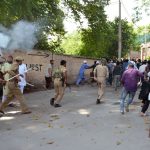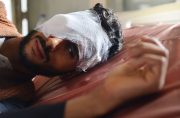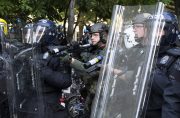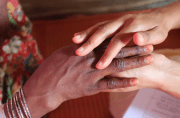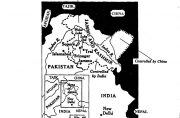Since the early 1990s, the valley of Kashmir in the north Indian state of Jammu and Kashmir has been the site of a violent conflict between Indian security forces and Muslim insurgents demanding independence or accession to Pakistan. In October 1992, Asia Watch (now Human Rights Watch) and PHR sent an investigation team to Kashmir to document the human rights abuses and violations of the laws of war by Indian security forces and by the militant forces. In 1993, PHR and Asia Watch released two reports: “The Crackdown in Kashmir: Torture of Detainees and Assaults on the Medical Community” and “The Human Rights Crisis in Kashmir: A Pattern of Impunity,” both of which detail the military’s torture of detainees, the government’s targeting of health professionals, and human rights violations such as killings and rapes carried out by armed militants.
Since the 1990s, PHR has continued to speak out against human rights violations in India. In 1994, we revealed how police in the state of Punjab deliberately executed, “disappeared,” and tortured detainees to stamp out Sikh militant groups. In “Rape in Kashmir: A Crime of War,” PHR documented how Indian security forces and militant forces in Kashmir used rape to punish, intimidate, coerce, humiliate, and degrade their female victims. In 2008, the organization advocated for the release of Dr. Binayak Sen, a physician and human rights activist detained for his alleged involvement with prisoners who were a part of the banned Communist Party. PHR also drew attention to the human rights violations that occurred against Burmese refugees in Delhi and during the 2016 protests in Jammu and Kashmir, when police used tear gas and excessive force to subdue civilians, many of whom were not provided adequate medical care following their injuries. PHR’s findings can be found in the report “Blind to Justice: Excessive Use of Force and Attacks on Health Care in Jammu and Kashmir, India.”

